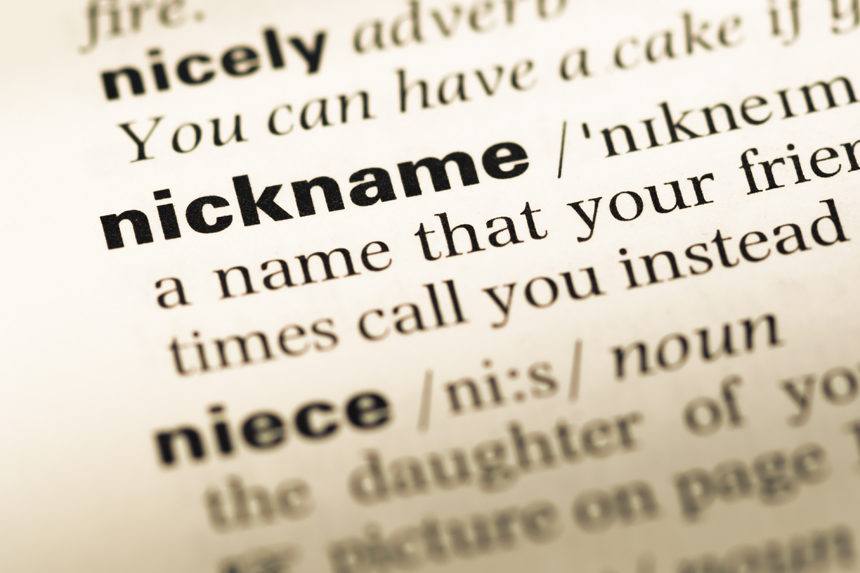Managing editor and logophile Andy Hollandbeck reveals the sometimes surprising roots of common English words and phrases. Remember: Etymology tells us where a word comes from, but not what it means today.
I sometimes wonder if guys named Nicholas get a little ego boost from believing that their nickname Nick is the Nick of nickname. If they do, this week’s etymological exploration could deflate a few egos.
Long ago, before standardized spelling was even a consideration (indeed, before standardized was even a word), Old English had a verb that appeared as ecan, eacan, and eacian. This became more commonly echen or, by the year 1200 in north England and the East Midlands, eken. Regardless of how it was written, the word meant “to increase or lengthen.”
Now, soon after a person is born, they are given two or three different names. But in many cases, and for many reasons, sometimes none of those names seem quite right for a person, so either they, their parents, their friends, or their enemies give them still another name. Because that further moniker increased the number of names that person had, 800 years ago they were called eke names — literally meaning “extra name.”
Many an English speaker had an eke name, from the lowliest peasants to monarchs. But over time, quick speech and mishearing caused, by the mid-15th century, a misdivison of an eke name — it became a neke name. Eventually, once people began concerning themselves with spelling, it became a nickname.
Eke didn’t entirely go away, of course. The sense of to eke out (as in “I eked out a living selling fake ancient Sumerian bedpans”) comes from the sense of stretching out (or lengthening) the resources you have so that they last longer.
Lastly, if you were at all confused or perturbed by the title of today’s column, a can sympathize. There are few words in English that look stranger or more malformed than the present participle of eke — namely eking — which looks more like the title of some sort of digital monarch than anything else.
Become a Saturday Evening Post member and enjoy unlimited access. Subscribe now




Comments
This was interesting and a little weird, which is eking fine by me.